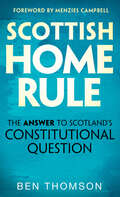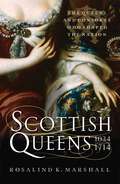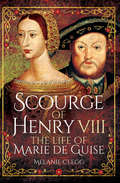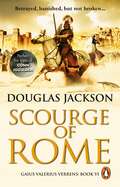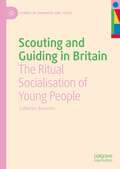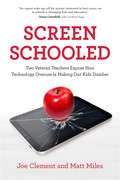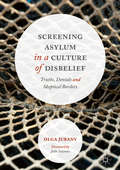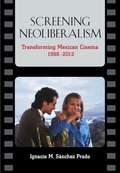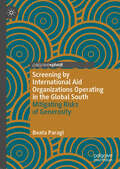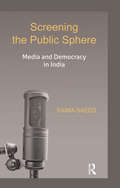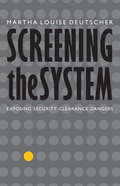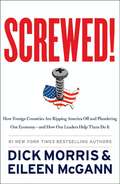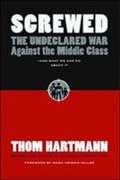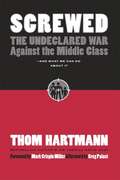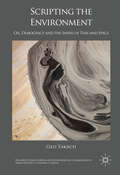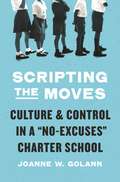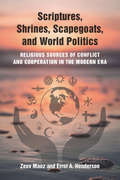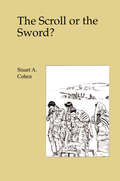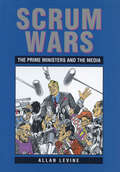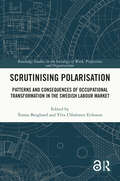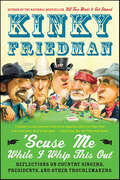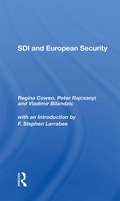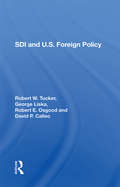- Table View
- List View
Scottish Home Rule: The Answer to Scotland's Constitutional Question
by Ben ThomsonA proponent of Scottish Home Rule offers a clear and concise introduction to the merits of the policy and the history of the movement. Every debate about the Scottish constitution should include the topic of Scottish Home Rule, and if there is to be another referendum in Scotland then Home Rule should be one of the options on the ballot paper. Yet, for all its importance, Home Rule is not widely understood. The proposal is seen by many Unionists as the slippery slope to Independence. Meanwhile, Independence supporters regard it as a Unionist proposal to retain sovereignty over Scotland. It is however a strong proposal in its own right, with a separate history from Independence and a more likely steppingstone to Federalism. This book lays out the merits of Scottish Home Rule as the best solution for Scotland. It covers the history of support for the Home Rule option since 1860s, a clear outline of how it works, and a discussion about how it could both improve Scotland and act as a framework for constitutional reform across the UK.
Scottish Nationalism and the Idea of Europe: Concepts of Europe and the Nation (British Politics and Society)
by Atsuko Ichijo'Independence in Europe', adopted by the Scottish National Party (SNP) as its core policy in 1988, has become part and parcel of contemporary Scottish nationalism. But is this not a contradiction in terms? Nationalistic logic dictates that one cannot demand independence while accepting the constraints that come with membership of the European Union. This book takes up that question and explores the conditions that have emerged and become integrated with Scottish society today.Scottish Nationalism and the Idea of Europe offers fresh insights into the 'pro-European' dimension of Scottish nationalism and its implications for the UK. The book also argues for the necessity of examining the uses of history in seeking to understand the 'new' nationalisms of contemporary Europe.
Scottish Queens, 1034–1714: The Queens and Consorts Who Shaped a Nation
by Rosalind K. MarshallAn &“enlightening and fascinating&” exploration of Scotland&’s royal women, from Lady Macbeth to Mary Queen of Scots and beyond (Booklist). The lives of the Scottish queens, both those who ruled in their own right and the consorts, have largely been neglected in conventional history books. One of the earliest known Scottish queens was none other than the notorious Lady Macbeth. Was she really the wicked woman depicted in Shakespeare&’s famous play? Was St Margaret a demure and obedient wife? Why did Margaret Logie exercise such an influence over her husband, David II, and have we underestimated James VI&’s consort, Anne of Denmark, frequently written off as a stupid and willful woman? Rosalind K. Marshall delves into these questions and more in this entertaining, impeccably researched book. &“A broad, impressive historical work and solid introduction to Scottish history from an oft-ignored perspective: that of the queens who exercised power whenever and wherever they could find it.&” —Foreword Reviews Includes illustrations and genealogical tables
Scourge of Henry VIII: The Life Of Marie De Guise
by Melanie CleggAlthough Mary, Queen of Scots continues to fascinate both historians and the general public alike, the story of her mother, Marie de Guise, is much less well known. A political power in her own right, she was born into the powerful and ambitious Lorraine family, spending her formative years at the dazzling and licentious court of François I. Although briefly courted by Henry VIII, she instead married his nephew, James V of Scotland, in 1538.
Scourge of Rome: (Gaius Valerius Verrens 6): a compelling and gripping Roman adventure that will have you hooked to the very last page (Gaius Valerius Verrens #6)
by Douglas JacksonBestselling author Douglas Jackson expertly brings the Roman Empire to life in this riveting historical adventure of fire, blood and battle. Perfect for fans of Simon Scarrow, Ben Kane and Conn Iggulden. Readers are loving Gaius Valerius Verrens! "Storytelling of the highest order" - 5 STARS"Glorious Roman adventure." - 5 STARS"The drama never lets up - it is gripping" - 5 STARS"I'm just gutted to have finished it!" - 5 STARS"Verrens rules, ok?" - 5 STARS************************************************************BETRAYED, BANISHED BUT NOT BROKEN...70 AD: Disgraced, dishonoured and banished on pain of execution if he ever returns to Rome, Gaius Valerius Verrens makes his way East through the death and destruction of the savage Judaean rebellion. He knows his only hope of long term survival lies with his friend Titus, commander of the Army of Judaea and son of the newly crowned Emperor Vespasian.But when he reaches the Roman camps that surround the seemingly impregnable city of Jerusalem he finds Titus a changed man. Gone is the cheerful young officer he knew; in his place, a tough, ruthless soldier under pressure from his father to end the insurrection at any cost. Soon, Valerius finds himself at the centre of a web of intrigue spun by Titus' lover, Queen Berenice of Cilicia, and her sometime ally, the general's turncoat adviser, Flavius Josephus, who together have an ulterior motive for wanting the siege to end quickly.Yet the laurels Valerius needs in order to regain his honour cannot be won in the tunnels that run beneath Jerusalem. Only in the heat and blood of battle can he find the glory that brought him the title Hero of Rome.Gaius Valerius Verrens' adventures continue in Saviour of Rome.
Scouting and Guiding in Britain: The Ritual Socialisation of Young People (Studies in Childhood and Youth)
by Catherine BannisterThis book explores the prevailing role of rites of passage, ritual, and ceremony in contemporary children’s lives through the lens of modern-day incarnations of uniformed youth movements. It focuses on the socialising ritual and customary practices of present-day grass-roots Scout and Guide groups, asking how Britain’s largest and best-known uniformed youth organisations employ ritualised activities to express their values to their young members through language and gesture, story and song, dress, and physical artifacts. The author shows that these practices exist against a backdrop of culturally-constructed beliefs about what constitutes the ‘good child’ and ‘good childhood’ in twenty-first century Britain, with in-movement practices intended to help children develop positively and prepare for social life. The book draws on case study accounts of group performances, incorporating the voices of children and adults reflecting on their practices and experiences.
Screen Schooled: Two Veteran Teachers Expose How Technology Overuse Is Making Our Kids Dumber
by Joe Clement Matt MilesOver the past decade, educational instruction has become increasingly digitized as districts rush to dole out laptops and iPads to every student. Yet the most important question, "Is this what is best for students?" is glossed over. Veteran teachers Joe Clement and Matt Miles have seen firsthand how damaging technology overuse and misuse has been to our kids. On a mission to educate and empower parents, they show how screen saturation at home and school has created a wide range of cognitive and social deficits in our young people. They lift the veil on what's really going on in schools: teachers who are often powerless to curb cell phone distractions; zoned-out kids who act helpless and are unfocused, unprepared, and unsocial; administrators who are influenced by questionable science sponsored by corporate technology purveyors. They provide action steps parents can take to demand change and make a compelling case for simpler, smarter, more effective forms of teaching and learning.
Screening Asylum in a Culture of Disbelief
by Olga JubanyThis ethnographic book enhances our understanding of asylum screening, an area of immigration that is often overlooked and remains under-researched. Falsely perceived as a one-dimensional function of static state power, it is here revealed that asylum decisions at borders respond to a complex cultural construction, saturated by a meta-message of disbelief, denial and moral panics. The author demonstrates that immigration officers' work patterns, behavior and decisions are informed by such stereotyping, which has led to asylum narratives being interpreted in the light of concepts of social acceptability and rejection. Establishing a parallel with law enforcement, the author argues that this process replicates a professional world of categorization and control, forged within an autonomous immigration service subculture. This timely work will appeal to students and scholars of migration studies, identity and ethnic studies, social anthropology, sociology, law and policy studies. >
Screening Asylum in a Culture of Disbelief: Truths, Denials and Skeptical Borders
by Olga JubanyThis ethnographic book enhances our understanding of asylum screening, an area of immigration that is often overlooked and remains under-researched. Falsely perceived as a one-dimensional function of static state power, it is here revealed that asylum decisions at borders respond to a complex cultural construction, saturated by a meta-message of disbelief, denial and moral panics. The author demonstrates that immigration officers’ work patterns, behavior and decisions are informed by such stereotyping, which has led to asylum narratives being interpreted in the light of concepts of social acceptability and rejection. Establishing a parallel with law enforcement, the author argues that this process replicates a professional world of categorization and control, forged within an autonomous immigration service subculture. This timely work will appeal to students and scholars of migration studies, identity and ethnic studies, social anthropology, sociology, law and policy studies.>
Screening Neoliberalism: Transforming Mexican Cinema, 1988-2012
by Ignacio Sanchez PradoCavernous, often cold, always dark, with the lingering smell of popcorn in the air: the experience of movie-going is universal. The cinematic experience in Mexico is no less profound, and has evolved in complex ways in recent years. Films like Y Tu Mama Tambien, El Mariachi, Amores Perros, and the work of icons like Guillermo del Toro and Salma Hayek represent much more than resurgent interest in the cinema of Mexico. In Screening Neoliberalism, Ignacio Sanchez Prado explores precisely what happened to Mexico's film industry in recent decades. Far from just a history of the period, Screening Neoliberalism explores four deep transformations in the Mexican film industry: the decline of nationalism, the new focus on middle-class audiences, the redefinition of political cinema, and the impact of globalization. This analysis considers the directors and films that have found international notoriety as well as those that have been instrumental in building a domestic market. Screening Neoliberalism exposes the consequences of a film industry forced to find new audiences in Mexico's middle-class in order to achieve economic and cultural viability.
Screening by International Aid Organizations Operating in the Global South: Mitigating Risks of Generosity
by Beata ParagiAid organizations usually embrace the idea of digitalization, both in terms of using diverse technologies and processing data digitally for improving their services, making their operations more efficient and even mitigating various risks. While digital fundraising, the use of biometric ID systems or digitalized cash and voucher assistance enjoys widespread attention both in academic and practitioner circles, it is less known how aid organizations navigate between counterterrorism legislations and data protection laws in technical terms. Limiting the discussion to the EU General Data Protection Regulation and by conceptualizing screening — commonly used to prevent the use of donor money for illicit purposes, money-laundering, terrorism finance or corruption — as a data processing operation conducted by larger international aid organizations operating in the Global South, this book focuses on the matter of ‘transparency’ and ‘right to information’ being at the nexus ofsurveillance studies and privacy studies. By means of legal and social science methods, it simultaneously explores screening in light of classic surveillance and analyses whether opacity around screening by NGOs (data controllers) is in line with the spirit of European Union data protection regime from the perspective of individuals (data subjects). In so doing, Paragi also contributes to the discussion on the politics of transparency and highlights the dilemmas and challenges aid organizations operating in authoritarian regimes or conflict settings may face.
Screening the Public Sphere: Media and Democracy in India
by Saima SaeedFor centuries, democracy and development have steered the imagination of governments, citizens, intelligentsia and policymakers alike. Democracy without free media is a contradiction, while development without democracy is futile. Highlighting the power and significance of contemporary media, this book deconstructs news and news-making on Indian television. In exploring the concepts of ‘sense-making’ and ‘meaning-generation’, it examines how news and the dissemination of information and opinion influence the public sphere, participatory democracy, citizenship and civil society. Providing an original interpretation of the paradigmatic shifts in news content and newsroom practices, this book focuses on changing ownership patterns, increasing ‘entertainmentalization’ of news and the resultant ‘developmental reportage deficit’. At the same time, it confronts the uneasy and critical consequences of commercialization and rising sensationalism in news media. Finally, it discusses the role of Public Service Broadcasting, journalistic ethics, objectivity, and the politics of language and ideology in the media today, pointing to the need for greater diversity of content on the one hand and an emphasis on public interest in media policy-making, on the other. Drawing upon comprehensive empirical data, the democracy–media–development relationship is demonstrated through critical analyses of the media’s coverage of recent news events. This includes exhaustive content examination of news programmes on all major news channels of India, surveys with media experts and news professionals by way of questionnaires, and interviews with the audience to gauge the impact of media content on their understanding of social, political and economic issues. This volume will be especially useful to those in journalism, media and communication studies, as also to students of political science, sociology and economics.
Screening the System: Exposing Security Clearance Dangers
by Martha Louise DeutscherThe Personnel Security Clearance System—the process by which the federal government incorporates individuals into secret national-security work—is flawed. After twenty-three years of federal service, Martha Louise Deutscher explores the current system and the amount of power afforded to the state in contrast to that afforded to those who serve it. Deutscher’s timely examination of the U.S. screening system shows how security clearance practices, including everything from background checks and fingerprinting to urinalysis and the polygraph, shape and transform those individuals who are subject to them. By bringing participants’ testimonies to light, Deutscher looks at the efficacy of various practices while extracting revealing cultural insights into the way we think about privacy, national security, patriotism, and the state. In addition to exposing the stark realities of a system that is in critical need of rethinking, Screening the System provides recommendations for a more effective method that will be of interest to military and government professionals as well as policymakers and planners who work in support of U.S. national security.
Screwed!
by Dick Morris Eileen Mcgann Pete LarkinThe bestselling authors return with a blistering exposÉ of how America is being ripped off by friends and enemies alike-with the help of our own ruling elites. Our jobs go to China. Foreign aid goes to our enemies. Pakistan uses our money to fund terrorists who attack us. Saudi Arabia, which our soldiers have defended with their lives, funds 90 percent of the world's Islamic fundamentalism. The UN is awash in corruption; its bureaucrats steal the money we give it with total impunity. Fifteen hundred brave American soldiers have died defending the regime in Afghanistan-rated the second-most corrupt in the world! Meanwhile, European bankers and bureaucrats are taking over our economy and preempting our sovereignty. How do they get away with it? By hiring our own political leaders, as soon as they leave office, to lobby for them to rip us off. Former House Democratic leader Dick Gephardt, for example, sits on the board of an American affiliate of a Chinese company that has been denied the right to operate in the United States because it steals our technology. Former House Republican Appropriations Committee chairman Bob Livingstone represented Libya until just before Gaddafi fell. And we have a president who willingly obliges countries that poach on our sovereignty, refusing to stand up for our interests and our jobs as they confiscate half the royalties from our offshore energy, subject our elected leaders to criminal prosecution if they go to war without UN approval, and tell us what kind of land-use policies we should pursue. In Screwed!, bestselling authors Dick Morris and Eileen McGann lay bare the unvarnished facts as never before and suggest real, immediate, and specific steps to stop those who undermine our interests and take away our jobs. In the same vein as their previous crusading books-Catastrophe, Fleeced, and Outrage-Morris and McGann have documented, in great depth and detail, exactly how the United States is getting screwed, and how to stop it. They dig up the facts, name names, point fingers, and suggest concrete solutions-independent of partisan politics.
Screwed: The Undeclared War Against the Middle Class and What We Can Do About It
by Thom Hartmann(From the book cover) The War Is On: Fight for Your Democratic Birthright The American middle class is on its deathbed. Ordinary folks who put in a solid day's work can no longer afford to buy a house, send their kids to college, or even get sick. If you're not a CEO, you're probably screwed. Air America host Thom Hartmann shows how the American middle class that was so carefully constructed by our country's founding fathers has been systematically dismantled over the past quarter-century, and, under the guise of "freeing" the market, replaced by a system designed to line the pockets of the super-rich and corporations. Hartmann shows that it's not too late to return to the America our founders envisioned. Democracy requires a fair playing field. It will survive only if We the People stand up, speak out, and reclaim our democratic birthright.
Screwed: The Undeclared War Against the Middle Class—And What We Can Do about It
by Thom HartmannHartmann argues that the middle class is not the natural consequence of a free market based economy, but rather, the intended result of policies put into place to maximize the public good. Unfortunately, he maintains, the American middle class is on its deathbed.
Scripting the Environment
by Geo TakachThis volume explores how to engage audiences both beyond and within the academy more deeply in environmental research through arts-based forms. It builds on a multi-pronged case study of scripts for documentary film, audio-visual and stage formats, focusing on how the identity of a place is constructed and contested in the face of environmental concerns around fossil-fuel extraction in a globalized, visual society--and specifically on the rising, international public-relations war over Alberta's stewardship of the tar sands. Each script is followed by discussion of the author's choices of initiating idea, research sources, format, voices, world of the story, structure and visual style, and other notes on the convergence of synthesis, analysis and (re)presentation in the script. Included are lively analysis and commentary on screenwriting and playwriting theory, the creation and dissemination of the scripts, and reflections to ground a proposed framework for writing eco-themed scripts for screen, audio-visual and stage formats.
Scripting the Moves: Culture and Control in a "No-Excuses" Charter School
by Joanne W. GolannAn inside look at a "no-excuses" charter school that reveals this educational model’s strengths and weaknesses, and how its approach shapes studentsSilent, single-file lines. Detention for putting a head on a desk. Rules for how to dress, how to applaud, how to complete homework. Walk into some of the most acclaimed urban schools today and you will find similar recipes of behavior, designed to support student achievement. But what do these “scripts” accomplish? Immersing readers inside a “no-excuses” charter school, Scripting the Moves offers a telling window into an expanding model of urban education reform. Through interviews with students, teachers, administrators, and parents, and analysis of documents and data, Joanne Golann reveals that such schools actually dictate too rigid a level of social control for both teachers and their predominantly low-income Black and Latino students. Despite good intentions, scripts constrain the development of important interactional skills and reproduce some of the very inequities they mean to disrupt.Golann presents a fascinating, sometimes painful, account of how no-excuses schools use scripts to regulate students and teachers. She shows why scripts were adopted, what purposes they serve, and where they fall short. What emerges is a complicated story of the benefits of scripts, but also their limitations, in cultivating the tools students need to navigate college and other complex social institutions—tools such as flexibility, initiative, and ease with adults. Contrasting scripts with tools, Golann raises essential questions about what constitutes cultural capital—and how this capital might be effectively taught.Illuminating and accessible, Scripting the Moves delves into the troubling realities behind current education reform and reenvisions what it takes to prepare students for long-term success.
Scriptures, Shrines, Scapegoats, and World Politics: Religious Sources of Conflict and Cooperation in the Modern Era
by Zeev Maoz Errol A HendersonThe effect of religious factors on politics has been a key issue since the end of the Cold War and the subsequent rise of religious terrorism. However, the systematic investigations of these topics have focused primarily on the effects of religion on domestic and international conflict. Scriptures, Shrines, Scapegoats, and World Politics offers a comprehensive evaluation of the role of religion in international relations, broadening the scope of investigation to such topics as the relationship between religion and cooperation, religion and conflict, and the relationship between religion and the quality of life. Religion is often manipulated by political elites to advance their principal goal of political survival. Zeev Maoz and Errol A. Henderson find that no specific religion is either consistently more bellicose or consistently more cooperative than other religions. However, religious similarity between states tends to reduce the propensity of conflict and increase the opportunity for security cooperation. The authors find a significant relationship between secularism and human security.
Scroll Or the Sword ?
by CohenFirst Published in 1997. Routledge is an imprint of Taylor & Francis, an informa company.
Scrum Wars: The Prime Ministers and the Media
by Allan LevineThe image of the scrum – a beleaguered politican surrounded by jockeying reporters – is central to our perception of Ottawa. The modern scrum began with the arrival of television, but even in Sir John A. Macdonald’s day, a century earlier, reporters in the parliamentary press gallery had waited outside the prime minister’s office, pen in hand, hoping for a quote for the next edition. The scrum represents the test of wills, the contest of wits, and the battle for control that have characterized the relationship between Canadian prime ministers and journalists for more than 125 years. Scrum Wars chronicles this relationship. It is an anecdotal as well as analytical account, showing how earlier prime ministers like Sir John A. Macdonald and Sir Wilfrid Laurier were able to exercise control over what was written about their administrators, while more recent leaders like John Diefenbaker, Joe Clark, John Turner, and Brian Mulroney often found themselves at the mercy of intense media scrutiny and comment.
Scrutinising Polarisation: Patterns and Consequences of Occupational Transformation in the Swedish Labour Market (Routledge Studies in the Sociology of Work, Professions and Organisations)
by Tomas Berglund Ylva Ulfsdotter ErikssonThis book scrutinises polarisation in Sweden, identifying patterns and variations in labour market transformation and exploring the consequences in terms of jobs, income, prestige, unionization and employment security, as well as the effects on different social groups. Through a series of empirical studies, it sheds light on changes in the occupational structure and the ways in which these changes interact with other societal trends, such as increased temporary employment, rising migration and decreased unionization, whilst also exploring changes in the evaluation of occupations and attitudes towards trade unions. Drawing on distinctly sociological perspectives, it shows how transformations in society and the labour market have affected conditions for individuals and considers whether these changes reinforce existing inequalities occasioned by polarisation or create new ones. Scrutinising Polarisation considers whether and how the Swedish labour market has polarized – and, if so, what this means for individual employees and labour organizations. It will therefore appeal to scholars with interests in the sociology of work and professions, social inequalities and labour market transformations.
Scuse Me While I Whip This Out: Reflections on Country Singers, Presidents, and Other Troublemakers
by Kinky FriedmanKinky Friedman is back, and with 'Scuse Me While I Whip This Out he gets it on with all manner of egos. In this collection of twisted takes on life, the Kinkster gives us funny, irreverent, and insightful looks at outsized personalities from people he's known, like Bill Clinton, George W., Willie Nelson, and Bob Dylan -- not to mention Joseph Heller and Don Imus -- to people he's known in spirit, such as Moses, Jesus, Jack Ruby, and Hank Williams. With his meditations on subjects ranging from sleeping at the White House, marriage, his pets, fishing in Borneo, country music, and cigars to the tribulations of possessing talent, Kinky doesn't deny us the "flashes of brilliance and laugh-out-loud observations" (Rocky Mountain News) that are present in all his other work. Hilarious, irreverent, and passionately twisted, 'Scuse Me While I Whip This Out reads as if it were written by a slightly ill modern-day Mark Twain.
Sdi And European Security (East-west Monograph Ser.)
by F Stephen Larrabee Regina Cowen Peter Rajcsanyi Vladimir BilandzicOriginally published in 1987. European concerns about strategic defense and its impact on the stability of the East-West strategic balance have been the subject of frequent and lively discussion at the Institute for East-West Security Studies in the more than four years since President Reagan announced his Strategic Defense Initiative (SDI) in Marc
Sdi And U.S. Foreign Policy
by Robert E. Osgood Robert W. Tucker George Liska David P CalleoShowing how the development of space technology could affect the present system of deterrence, the authors consider the consequences for U.S. foreign policy, alliance relations, and strategic stability. In the first essay, Dr. Tucker argues that a greater commitment to defensive systems would not substantially affect deterrence or extended deterren
